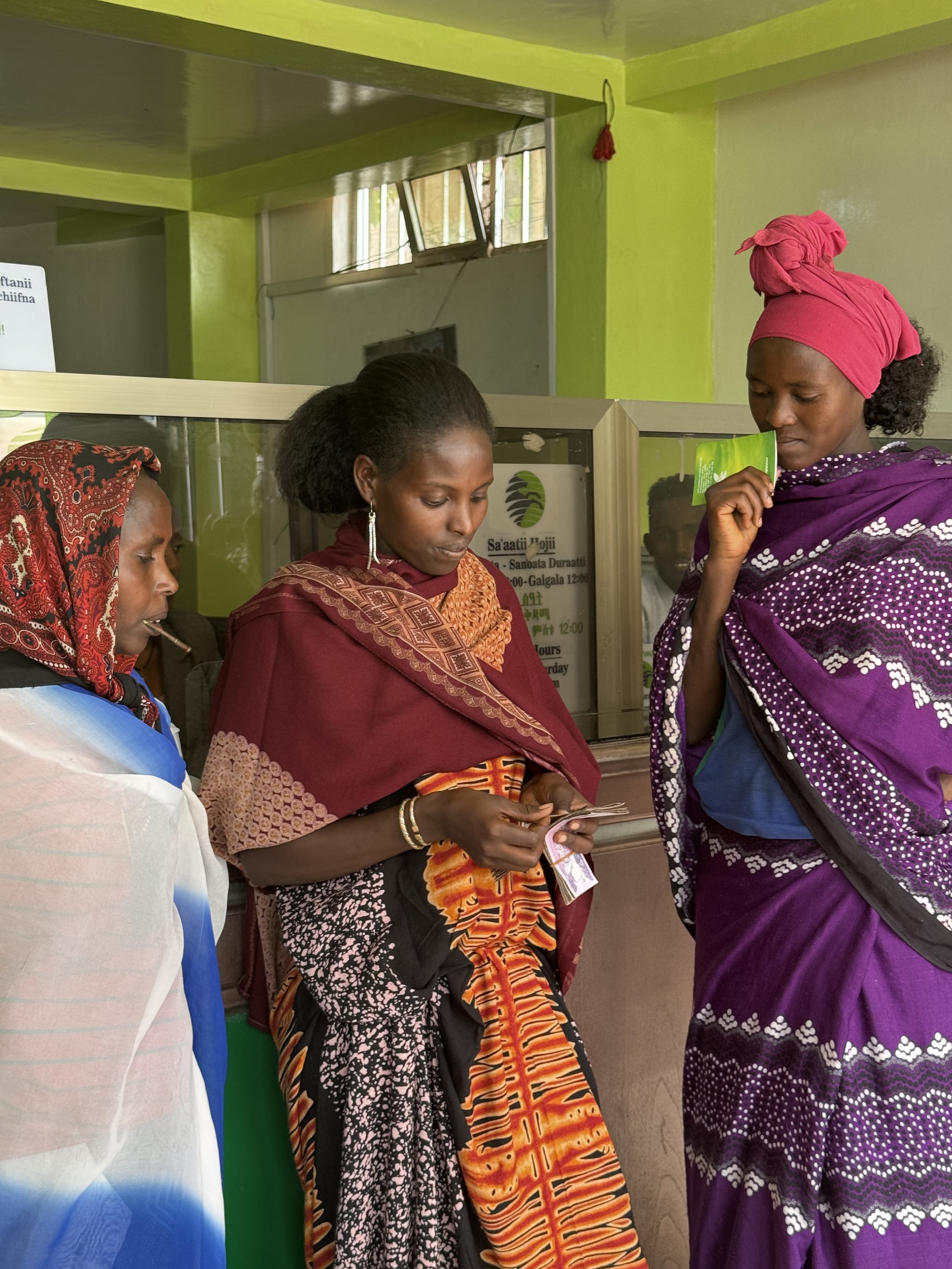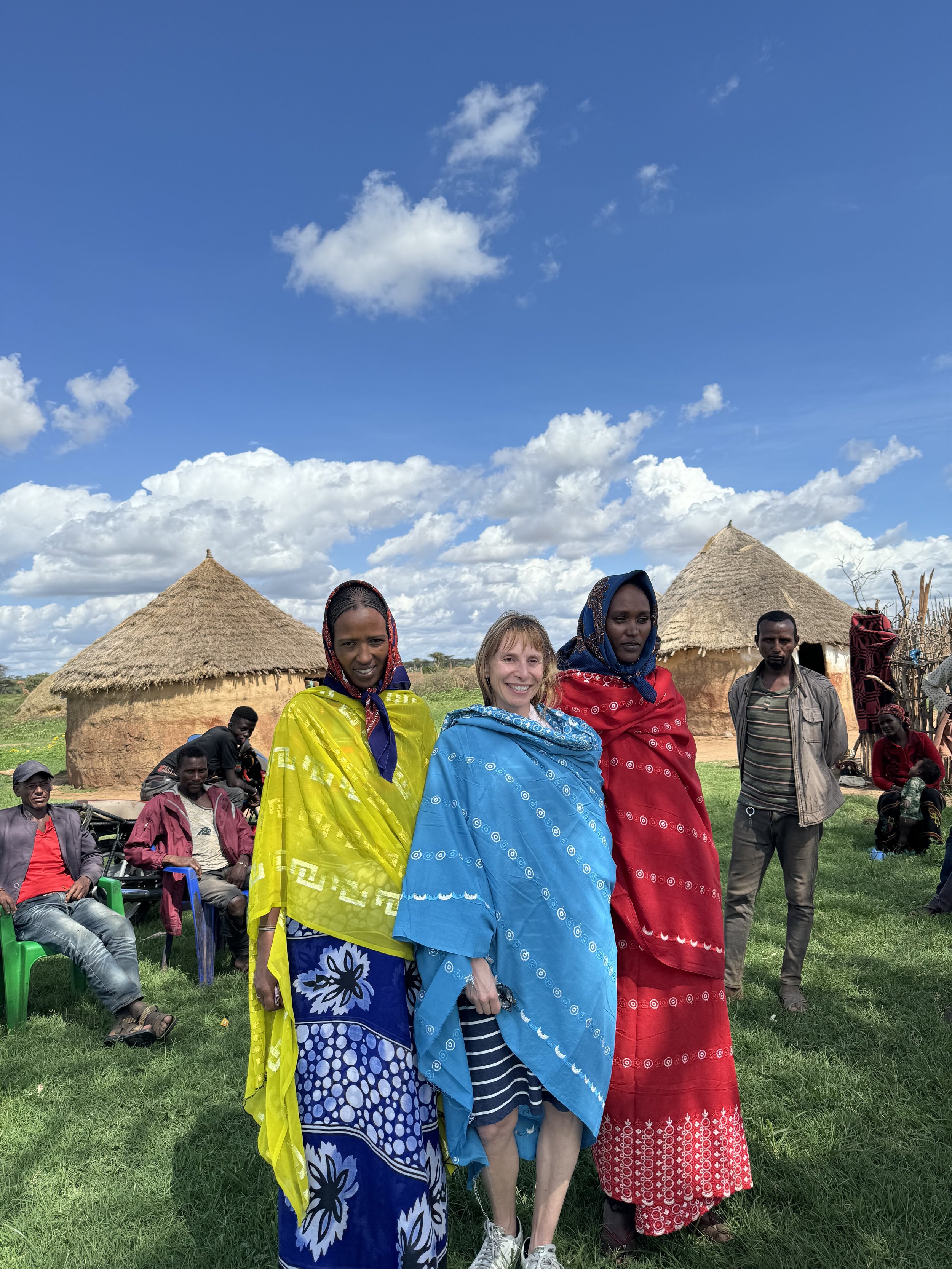BOMA, empowering women and lifting families out of extreme poverty in rural Ethiopia.
In June 2023, EPSCF provided gap funding to supplement generous investments made by seed donors. Due to the acute nature of the climate crisis, famine, drought, inflation, and unrest in the region, additional consumption support was needed to support enrolled households before disbursing the business startup grants. This investment in Borena Zone, Oromia Region, represents BOMA’s first pilot of Green REAP outside of Kenya.
This pilot served as an important learning and scaling opportunity. Overall, Green REAP Ethiopia achieved notable progress in lifting ultra-poor households out of poverty while fostering environmental stewardship and inclusive community structures. The integration of climate-smart enterprise, gender equity, and community conservation is a promising model for building resilience in Ethiopia’s drylands. These results validate the approach’s scalability, especially when embedded within national frameworks like Productive Safety Net Programme (PSNP) and Sustainable Land Management Program (SLMP).
Green REAP Ethiopia (2022–2024)—a partnership between BOMA and Caritas Switzerland (CACH)—supported 2,100 women and youth in Southern Ethiopia (Borena Zone, Oromia Region) to graduate from extreme poverty through a climate-resilient graduation model. The program combined sustainable enterprise development, savings, mentoring, and ecosystem restoration to build economic resilience while promoting gender equity and community-led natural resource management. Key achievements include:
Women and youth use sustainable green livelihoods to graduate out of extreme poverty.
99% of businesses met or exceeded business value growth targets.
83% of participant households have at least two sustainable sources of income (compared to 35% at baseline)
97% of participant households had at least 2 meals daily (compared to 77% at baseline)
95% of households had no children going to bed hungry in the past week (compared to 35% at baseline)
Livelihood diversification increased sharply; households with zero income dropped from 18% to 0%
Average savings grew from ETB 318 to ETB 11,237; savings group membership reached 100%.
Harmful income sources (e.g., charcoal burning) dropped to near zero
The target communities have structures, knowledge, gender equity, and social cohesion to sustainably manage natural resources.
Women’s decision-making authority rose across all domains—e.g., control over livestock purchases increased from 35% to 97%.
Committee membership grew from 11% to 94%; Participatory Forest Management (PFM) participation jumped from 1% to 76%.
Women now hold leadership roles in conservation efforts.
Perceived safety to pursue economic opportunities increased from 15% to 47%.
Target ecosystems show reforestation, rehabilitation, and stable ecosystem services.
The project actively contributed to reforestation efforts by supporting the government's seedling initiative, which aimed to produce 350,000 seedlings. BOMA collaborated with participants to support seven nurseries, which resulted in the production and distribution of 302,640 seedlings across the operational woredas.
Adoption of sustainable land and resource management practices rose substantially, including:
Afforestation/reforestation (21% to 45%)
Agroforestry (21% to 44%)
Organic farming (21% to 44%)
Water tower conservation (19% to 47%)
PFM increased from 23% to 44%, with daily forest access rising from 14% to 40%.
Nature-based green enterprise participation, while still emerging, increased from 1% to 4%, suggesting early traction in sectors like beekeeping, herbal medicine, and aloe production.
Next Steps
In 2025, EPSCF renewed funding to support the expansion of Green REAP in Ethiopia. Over the next three years, BOMA and Caritas Switzerland will enroll 4,200 women and youth in their climate-resilient graduation programming, benefitting over 98,000 individuals.


